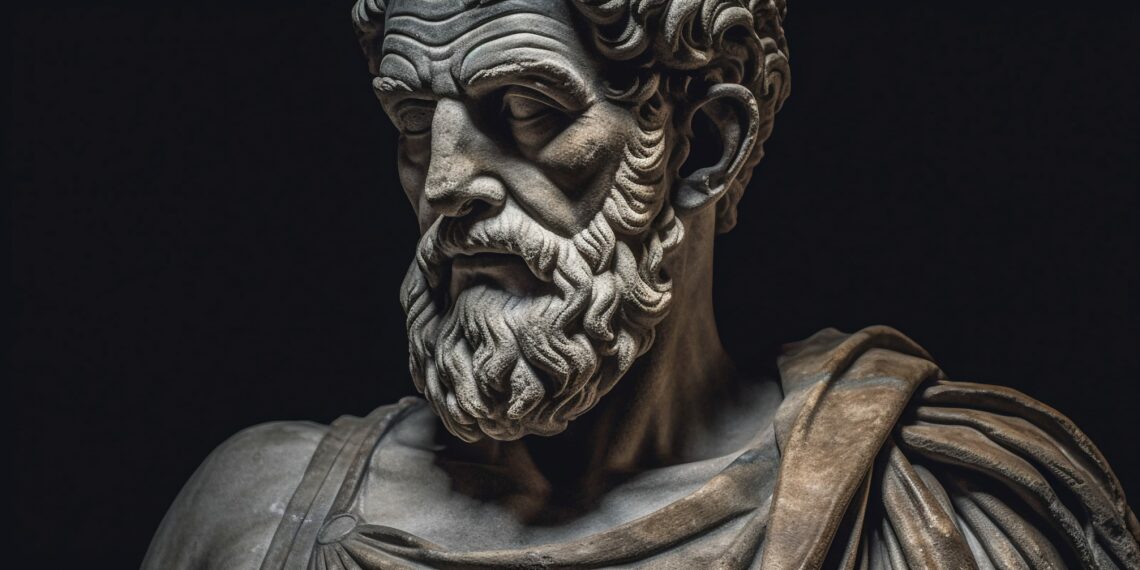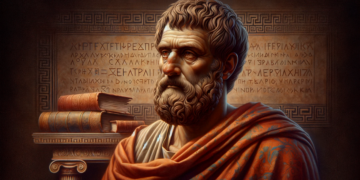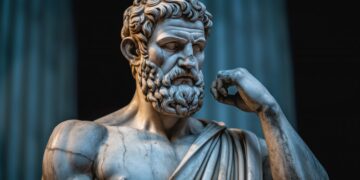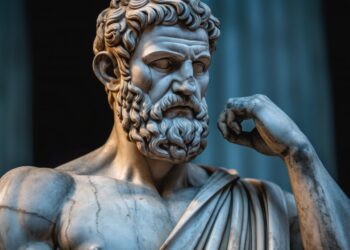Zeno, a renowned philosopher, was born around 334 BC in Citium, a city on the Mediterranean island of Cyprus. His heritage is debated, as Citium was a melting pot of Phoenician and Greek cultures. However, evidence suggests that Zeno had a Greek name and received a Hellenistic education, with no indication of him speaking any language other than Greek. His father, Mnaseas, bore a name interpretable in both Phoenician (“the one who makes forget”) and Greek (“the one who remembers”).
Much of what we know about his life comes from the works of Diogenes Laertius, who recounts Zeno’s attraction to philosophy following a consultation with the oracle on how to lead a fulfilling life. The divine, cryptic advice was to “take on the color of the dead,” prompting Zeno to immerse himself in the study of classical thinkers. Zeno became a successful merchant and, after surviving a shipwreck on a journey from Phoenicia to Peiraeus, arrived in Athens and visited a bookstore. There, he discovered the works of Xenophon, becoming so captivated by Socrates that he inquired where he might find a similar figure. At that moment, Crates of Thebes, a famous Cynic philosopher, happened to pass by, and the bookseller pointed him out.
Zeno is said to have been a man of slender build and dark complexion, leading an austere and ascetic life despite his wealth. This aligns with the influences of Cynic teaching and was largely reflected in his own Stoic philosophy. From the day he became Crates’ disciple, Zeno showed a keen interest in philosophy, but with a natural modesty that prevented him from adopting the Cynics’ brazenness. To overcome this, Crates tasked him with carrying a pot of lentil soup through the Ceramicus area; when a self-conscious Zeno tried to hide it, Crates shattered the pot with his staff. As Zeno fled with soup dripping down his legs, Crates shouted: “Why run away, my little Phoenician? Nothing terrible has happened to you.”
In addition to Crates, Zeno also studied with philosophers from the Megarian school, such as Stilpo, and the dialecticians Diodorus Cronus and Philo. He is also believed to have studied Platonic philosophy under Xenocrates and Polemo.
Zeno began teaching in a colonnade in the Athens Agora, known as the Stoa Poikile. Among his followers was King Antigonus II Gonatas of Macedonia, who often visited him in Athens. It is said that Zeno declined an invitation to visit Antigonus in Macedonia, instead sending his friend and disciple Persaeus. Other notable disciples of Zeno include Aristo of Chios, Sphaerus, and Cleanthes, who succeeded Zeno as the head of the Stoic school in Athens.
Zeno reportedly refused Athenian citizenship when offered, out of loyalty to his native land, where he was highly esteemed and contributed to the restoration of its baths. His name was inscribed on a column there as “Zeno the philosopher.” Zeno was a man of serious and reserved character; he preferred the company of few over many; delighted in deep research; and disliked verbose and elaborate speeches. Diogenes Laertius has compiled many of Zeno’s witty observations, though these anecdotes are generally considered unreliable.
Zeno died around 262 BC. It is said that upon leaving the school, he tripped and broke a toe. Striking the ground with his fist, he quoted a verse from the play Niobe, saying, “I come, I come, why do you call for me?”, and at that very moment, he died by holding his breath.
At his funeral, an epitaph was composed that read: “Though your native land was Phoenicia, why should that be held against you? Did not Cadmus come from there, who gave Greece its books and the art of writing?” This sought to convey that, despite his non-Greek origin, the Greeks respected Zeno. In his honor, a bronze statue was erected, and he was considered “the noblest man of his era.”
Today, one of the Moon’s craters is named in his honor.





